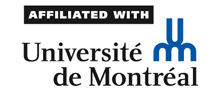By Sarah Lachance (Laval University)
What is the story?
On April 8-9 2015, MEDW co-organized a conference on the state of democracy in Quebec and Canada. Its goal was to assemble professors, politicians, and specialists from various associations of the civil society and from the media to discuss various issues related to the functioning of democracy. In a series a blog posts, we will sum up some of the main arguments and recommendations that emerged out of this conference.
In a previous blog post, we described the arguments made by the participants regarding various ways to increase turnout and decrease political apathy, especially among young citizens. In this post, we sum up the discussions of another panel regarding a crucial aspect of democracy in Quebec and Canada: party advertisements. This panel gathered André Larocque (Mouvement démocratique pour une constitution du Québec), Tasha Kheiriddin (National Post) and Thierry Giasson (Laval University).
Party advertisements and fair competition
Giasson claimed that party advertisements fulfill an important democratic function. They constitute a source of information for citizens regarding the upcoming election. However, they are also very expensive (especially television advertisements), which might potentially disadvantage smaller and poorer parties, thus threatening the fairness of electoral competition
Giasson reminded the audience that some of the practices operated by media firms tend to reinforce this unfair situation. The media impose very high prices for party advertisements. The Canadian electoral law that states that the media should apply a preferential price to parties during campaigns is not implemented in practice.
Finally, Larocque pointed that this unfair situation might also contribute to a general feeling of cynicism regarding politics among citizens.
Regulating party advertisements
All participants in this panel agreed upon the existence of a problem with party advertisements and fair competition. However, none of them advocated a radical ban of these advertisements, which would be difficult to implement in the era of the web 2.0. They all favoured some sort of regulation, such as a limitating the amount of money spent on party advertisements during a campaign or the fixation of relatively cheap advertisement prices by the media for all parties.
Larocque also mentioned the possibility for the State to publicly fund the campaign of the parties engaged in the election. This would ensure that all parties have the same amount of money available for advertisements and that the electoral competition is fair.
However, Kheiriddin offered a counter-argument. If the State funds party campaigns, it means that citizens give money to all the parties through taxation. Hence, this would go against the very principle of freedom of speech, as politically engaged citizens would not be able to choose which party they want to support.
